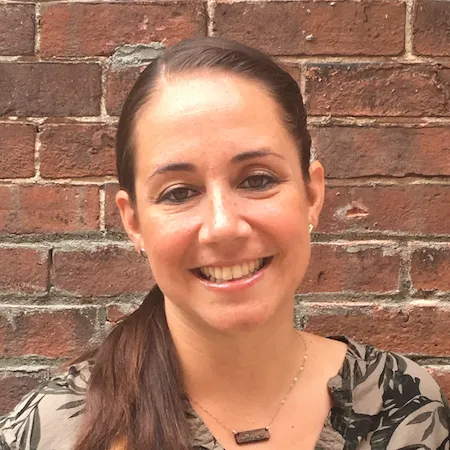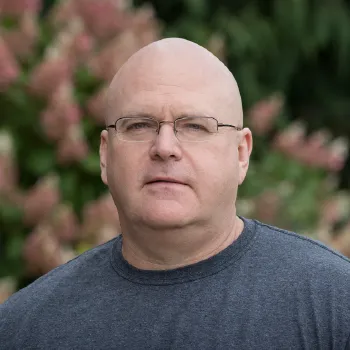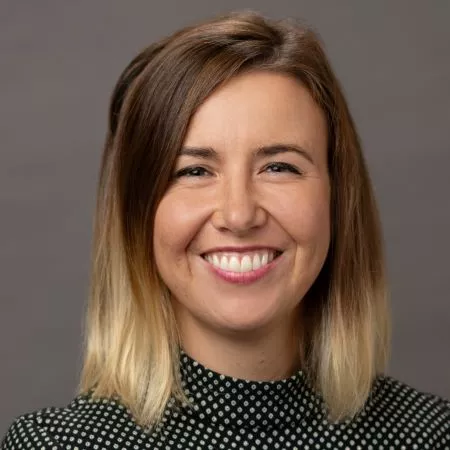The issue of climate change is both existential and urgent. Climate activists around the world continue to call for systemic changes from governments, green technology investments from industries, and sometimes even scientific acceptance from individuals. But that begs some questions, what if we did change our behaviors? What if we as individuals, conglomerates, and perhaps most importantly, political governing bodies, heeded our own advice—how much would that change the projected increases in global temperatures?
In this interview, we talk with experts in the rather new field of integrating human behavior into climate change models: Drs. Brian Beckage and Katie Lacasse.
For a full transcript of this interview, click the PDF below.
-
About the Presenters
Image

Katherine Lacasse
Associate Professor of PsychologyDr. Katherine Lacasse is an Associate Professor in the Department of Psychology at Rhode Island College. She is a social psychologist broadly interested in understanding human-risk perception, decision making, and behavior change. She conducts much of her work as part of interdisciplinary teams, working on integrating human behavioral feedbacks into the modeling of the climate and local ecological systems.
Image
Katherine Lacasse
Associate Professor of PsychologyDr. Katherine Lacasse is an Associate Professor in the Department of Psychology at Rhode Island College. She is a social psychologist broadly interested in understanding human-risk perception, decision making, and behavior change. She conducts much of her work as part of interdisciplinary teams, working on integrating human behavioral feedbacks into the modeling of the climate and local ecological systems.
Image
Brian Beckage
Professor of Computer Science and Plant BiologyDr. Brian Beckage is an ecologist broadly interested in population and community dynamics including tree demography, maintenance of species richness, and the ecological effects of climate change. He emphasizes the use of quantitative approaches to investigate the mechanisms structuring ecological systems, including statistical models, analytical models, and computer simulation models.
Image
Brian Beckage
Professor of Computer Science and Plant BiologyDr. Brian Beckage is an ecologist broadly interested in population and community dynamics including tree demography, maintenance of species richness, and the ecological effects of climate change. He emphasizes the use of quantitative approaches to investigate the mechanisms structuring ecological systems, including statistical models, analytical models, and computer simulation models.
Erin Duffy
Faculty SpecialistErin Duffy is a Communications Associate at the National Socio-Environmental Synthesis Center (SESYNC). In this role, she supports the communications team in designing and developing communication products that disseminate the vast knowledge created by SESYNC researchers worldwide. Inspired by the Center’s diverse and interesting projects and participants, Erin developed a podcast, Succinct Science—Audio Interviews from SESYNC, to help integrate intellectually expansive information into everyday life.
Passionate about community, individual, and environmental health and well-being, Erin has...
Erin Duffy
Faculty SpecialistErin Duffy is a Communications Associate at the National Socio-Environmental Synthesis Center (SESYNC). In this role, she supports the communications team in designing and developing communication products that disseminate the vast knowledge created by SESYNC researchers worldwide. Inspired by the Center’s diverse and interesting projects and participants, Erin developed a podcast, Succinct Science—Audio Interviews from SESYNC, to help integrate intellectually expansive information into everyday life.
Passionate about community, individual, and environmental health and well-being, Erin has worked in a variety of roles, including environmental educator; marketing associate for a social service organization, and community garden coordinator for a food bank, both through AmeriCorps; as well as a caregiver for adults with differing physical and intellectual abilities.
Erin earned a bachelor's degree in Environmental Policy and Science, and she has continued to pursue educational opportunities, most recently by becoming a certified yoga instructor and positive psychology practitioner.
